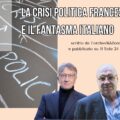Today, the map of the world isn’t as reassuring as it was a generation ago. Threats of nuclear war have been substituted with regional conflicts, and unilateral interests have substituted ideological disputes. The flags that signal wars or danger are multiplying all over the globe. Acting as both cause and effect, the resurgence of nationalism is stamping its dangerous seal. Passing through the boundless Russian territories, a surge of nationalism is moving from the Land of the Rising Sun to the heart of Old Europe. Narendra Modi’s recent win in India—leader of the traditionalist Janata Party—has added vigor to a new situation where anti-globalization is prevailing, both in electoral competitions as well as in international equilibriums. In December 2012, Shinzo Abe was reelected as prime minister of Japan, running on a platform vindicating Japan’s role. He has no intention of bending to China’s economic domination or of reconsidering Japan’s aggression during World War II. Putin was also reelected due to a strong nationalistic consensus, and his post-imperial ambitions have contrasted strongly with neighboring states. The war in Ukraine is only the latest example. But the distribution of conflicts won’t stop spreading; there are unresolved disputes in the Middle East, civil wars in Arab countries, and violence in Africa. This complex situation seems, in principle, to prove China right. Every country only needs to account for its own interests and protect its citizens. Intergovernmental agreements don’t need idealistic ambitions as much compromises on divergent hypotheses. Beijing believes that if negotiations fail, war will erupt. The cornerstones of their foreign policy rest on this: bilateral agreements and criticizing the United States for its role as the “world’s policeman.” The first is easily intuited: China can make its political, economic, and military weight count in negotiations. Except for rare cases, it would have convincing arguments. The second point is more controversial. If it’s true that the United States plays a dominant role, is it true that China exerts no interference? If Washington DC’s errors in Iraq and Afghanistan have been confirmed, can “non interference” be used as the sole beacon of foreign policy? The real issue is whether China can feign disinterest in international problems and confront them only when they concern their immediate interests. China’s economic development led it to maritime claims that had been dormant for decades. The same strategy was not applied to great global issues. At first, China was excluded from them, but now it’s participating reluctantly at the margins. A country of such importance should carry out a more structured and participatory role. It’s hypocritical to think that all nations are equal and that war can be repelled with words alone. Tensions can be ignited with apparently peaceful means. This is why China should be more involved in international crises and work toward communal strategic objectives rather than shortsighted national interests. Obama’s mindset is more involved in internal politics. By now he’s in the final part of his second term, a “lame duck.” He lacks dynamism and he may be aware of his limits. The Peking duck, however, is well known and respected, has a millennial history and could be very palatable. It should escape from its enclosure, win acceptance outside of China, and position itself with engaging but non-aggressive marketing. This is the only way a glorious dish can take part in a celebration of peace and security.
Share
















